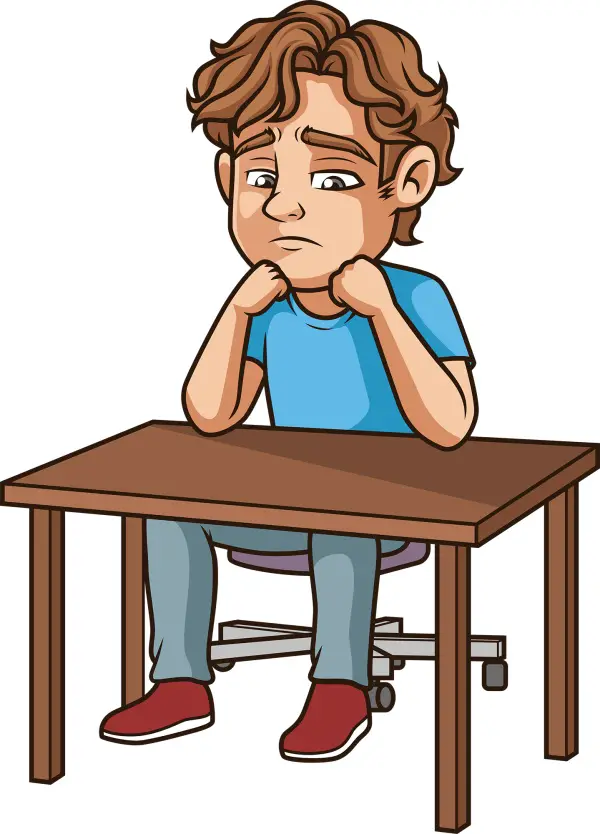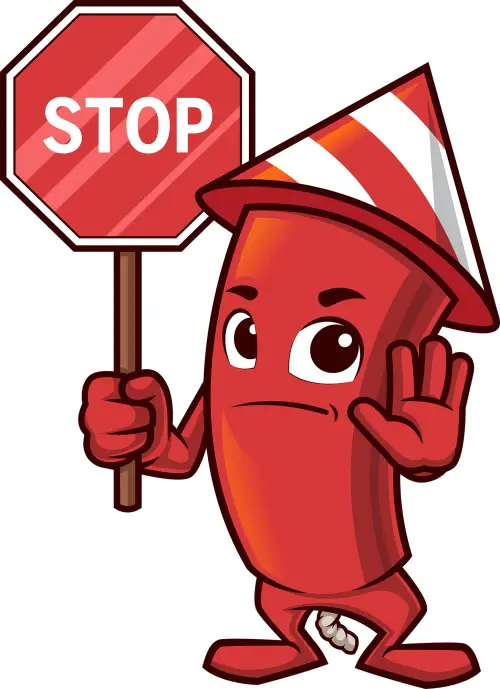So what does it mean to discover you’re being a terrible son or at the very least, your parents and extended family think you are? How do you figure that out and once you do, what do you do about it?
Dealing with a terrible son issue depends on age. Personal responsibility up until teen years is negligible, yet character formed early impacts future behavior. Teen and adult terrible sons negatively affect the whole family, so concerted effort is required for their positive change.

In this article I’ll share my experiences as both a son and father of sons, and what I’ve learned about the dynamics from both perspectives.
In addition I’ll explain what it actually means to be a terrible son (it’s not what is generally portrayed, either), and how to make real, lasting changes for the better if necessary.
Admittedly, it’s not easy to change one’s behavior, otherwise we’d all quit smoking and keep to our diets. New Year’s resolutions would be nonexistent.
So trying to make changes in your own behavior (or help someone else change) isn’t an easy 1-step task. I’m happy to share my suggestions on the subject, particularly as it pertains to parenting sons, so please read on to learn more!
How Do You Know If You’re A Terrible Son?
Perhaps one of the hardest revelations to accept is that you are not as good as you once thought (cue Toby Keith’s “As Good As I Once Was“, available at Amazon), or even worse, that you are terrible at something. This is especially poignant if you realize that something is being a son.
The way to know if you’re a terrible son is by observing how others perceive your actions and behavior. In general, evaluating your behavior in comparison to what’s typical of sons in your culture and community, using social mores and norms, is a reliable guide, as well as your own gut feeling.
Knowing you’re a terrible son is both humbling and despicable.
It may seem counterintuitive at first. Yet it’s not. It’s a humbling admission because you are recognizing your personal character faults, something quite humbling to do but also quite admirable to admit.
However, it’s also despicable because being a terrible son is not at all ‘admirable’ behavior.
So again, how do you ever come to this conclusion? Well, if you find that you cause your parents pain regularly, you can pretty much assume you are terrible. If you’re behavior brings heartache- not just a one time thing, but repeatedly, you’re terrible.
Of course, there are certainly cases where a one-time ‘terrible’ decision or choice could automatically make you terrible, too, but those are outliers. Usually, it’s a way of being, not a one-time thing, that makes up how others see you and what defines you as a person.
In some cultures, good sons always listen to their parents and take care of them for life. Even as adults, then, it might look like sons support their parents and live with them, bringing their wife into the family home for example.
Author Nicholas Day (of Baby Meets World), said that Western cultures have kids that are less likely to listen to their parents, raising them to be more independent. Whereas in Asian cultures, parental respect is more common and ingrained. But how does this relate to the issue of ‘terrible sons’?
Well, in some ways, it simply means the definition of being a ‘terrible son’ is cultural, too. So as one considers whether or not he is terrible (or if your son is terrible), you must understand and acknowledge the lens with which you’re looking, too.
Special Note: You’re not ‘a terrible son’ just because you disagree with your parents or live by different standards. In fact, you might actually be a better person than your parents character-wise. Being terrible is not saying ‘no’ to your parents either and vice versa, it doesn’t make you a good son if you always say ‘yes’. You may actually be helping your parents by not giving in to them or supporting their habits, if their habits are unwise or poor choices.
So admittedly being a terrible son can be a number of things, especially when you factor in culture, religion, and community. However, that being said, here are some traits that generally equate ‘terrible’:
- Belligerent
- Intentionally hurtful
- Neglectful
- Abusive
- Untrustworthy
- Disloyal
If you are any of these things, or worse yet, possess several of these traits as they relate to your parents and your role as a son, then you should look long and hard in the mirror; it seems you (or your child, if that’s your perspective here) are a terrible son.
You might also like these articles about parenting sons:
- What to Know About Sons Who Hate Their Mothers
- What to Know About Having A Terrible Son (From Mom of 4)
- What to Know About Sons Who Hate Their Mothers
Why Am I A Terrible Son?
Now once you’ve determined you’re a terrible son, you hopefully want to rectify that. Or if you realize you have a terrible son, there are some things you can do to deal with it healthfully. But you need to understand causes to do this, and causes for being a terrible son are complex.
The main cause for terrible children is poor parenting, whereas teens and adults have more ownership for bad behavior regardless of negative outside influences. It’s harder to break bad habits the longer you have them and it takes more effort to change your character once it’s developed over time.
Why toddler sons are terrible is going to be much different than why teens are terrible sons. For instance, toddler sons’ terrible behavior is at first just a natural response to their frustration as they deal with big shifts in their moods and physiological changes. They can understand much more than their two or three-year-old body can express reasonably.
Our oldest was quite the terrible son as a toddler. He was stubborn, demanding, and disrespectful especially to his mother. But it wasn’t his fault. He was two (or in his case, it was more of a ‘terrible threes’.) It was up to me to teach him respect, discipline, and how to be, which I did.
So while toddler misbehavior is normal and natural, how parents respond must be much more intentional to deal with it properly. Poor parenting at this stage will determine whether or not terrible twos turns into terrible threes, fours, and so on!
And yet, the teen years are also commonly known as a tumultuous time.
Teens deal with a lot of the same growth spurts as toddlers, along with some pretty difficult hormones. Parenting plays a role in teen behavior, that is whether or not it turns ‘terrible’ but unlike toddlers, teens play a bigger part in the responsibility for being terrible, if that’s the case.
And the older sons get, the more responsible they are for their actions. The hard part though is that if they’ve been behaving terribly for a long time, it’s more difficult to first, recognize the behavior as ‘terrible’ and then change it once you do.
So while causes of being a terrible son are at first related to our parents and how they raised us, over time the causes lie more with our own poor behavior. Often we act terribly because it’s the easy way. It’s usually connected to our pride and selfish desires, too. Putting ourselves before others, in this case, our parents.
Our behavior forms our character and changing character is darn near impossible! It’s not impossible though. With each decision and choice we make; and with each action we take, we can change. This means you can indeed stop being a terrible son but it takes willful desire!
How To Stop Being A Terrible Son

So after realizing you’re a terrible son and why, then the next step is to figure out how to stop it. You don’t actually have to resign to staying that way. So what do you do to stop being a terrible son?
How to stop being a terrible son depends on age. The older we are, the more control we have in correcting our bad behavior. For instance, while teens are better able than toddlers, adults have the most control over decisions. Keep in mind, changing long-term behavior is still challenging.
Practical Ways to Stop Being A Terrible Son: Treat your parents as ‘regular, human-beings’, like you would a stranger, a friend, and a boss, for instance. This means use good manners and be courteous. Talk to them on a regular basis, too, which doesn’t mean every day or even every week but make a schedule and stick to it. Offer support, as needed, though it doesn’t mean it must be financial or be overwhelming to your own situation. And if your parents aren’t responsive or receptive, then you’ve done your best and in good conscience, go about your business being no longer deemed ‘a terrible son’ regardless of how they reacted.
- Toddlers: Since toddlers have no real control over their terrible behavior, it’s up to parents to teach them that terrible behavior isn’t fruitful. From removing them from instigators to keeping regular routines and being consistent, parents are able to teach terrible toddlers to change their behavior to something more appropriate.
- Terrible teen sons, however, can change by being more intentional in their actions. Sometimes teens learn that their terrible behavior isn’t getting the results they want; and other times, they stop because of more intrinsic thinking. Parents still play a role in helping terrible teen sons to change, though.
- If you’re a terrible adult son, it’s really up to you to change that behavior. As adults, we determine our day and how we go about it. In this stage of life, there really is no one to blame other than ourselves in how we react to situations and the choices we make. To change being a terrible son as an adult, you do it one action at a time, day after day. And the more the days add up, the easier it becomes until eventually, you aren’t terrible anymore.
Personal Note: Just because you have a bad relationship with your parents doesn’t make you a terrible son either. I had to come to terms with this myself. My dad left us when I was 5 years old. But my mom also wasn’t very responsive even though she technically raised us. This created a lot of distance between us as I grew older. As an adult, I tried several times to connect with her and repair our relationship but it wasn’t successful nor healthy for me and my own family. In this case, the best way for me to be ‘a good son’ unfortunately was to let it go.
The Takeaway of Being A Terrible Son
The takeaway about being a terrible son is, essentially, that it doesn’t happen immediately and with intentional effort, can be changed. And that terrible sons are made, for the most part.
Terrible sons are made by poor parenting, that is, as far as children as concerned. However, sons must take ownership for their actions as adults.
Even if parents were not especially helpful or supportive, adult sons can resist being terrible sons as adults and should do whatever they can to do that, even if it’s just simply for their own piece of mind.
For further reading about sons, I recommend these articles:
